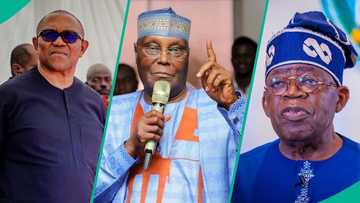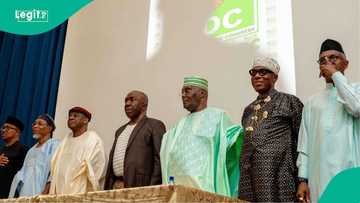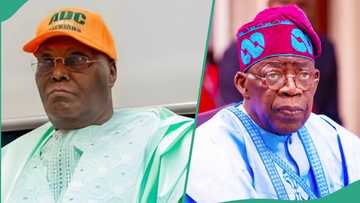2027 Election: 3 Strong Reasons the Atiku-Led Coalition Against Tinubu May Not Work
- Despite early momentum, the proposed mega coalition against President Tinubu for the 2027 elections is faced with obstacles
- President Tinubu retains strong grassroots political machinery and institutional control, giving him a significant advantage over a fragmented opposition
- The coalition’s inability to agree on a single charismatic and widely accepted candidate risks derailing efforts to mount a credible challenge in the upcoming election
As Nigeria edges closer to the 2027 general elections, political alignments and coalitions are beginning to take shape across party lines.
President Bola Ahmed Tinubu, who assumed office in 2023 after a hard-fought victory, is already facing a chorus of opposition from key political figures including former Vice President Atiku Abubakar and Labour Party’s Peter Obi.
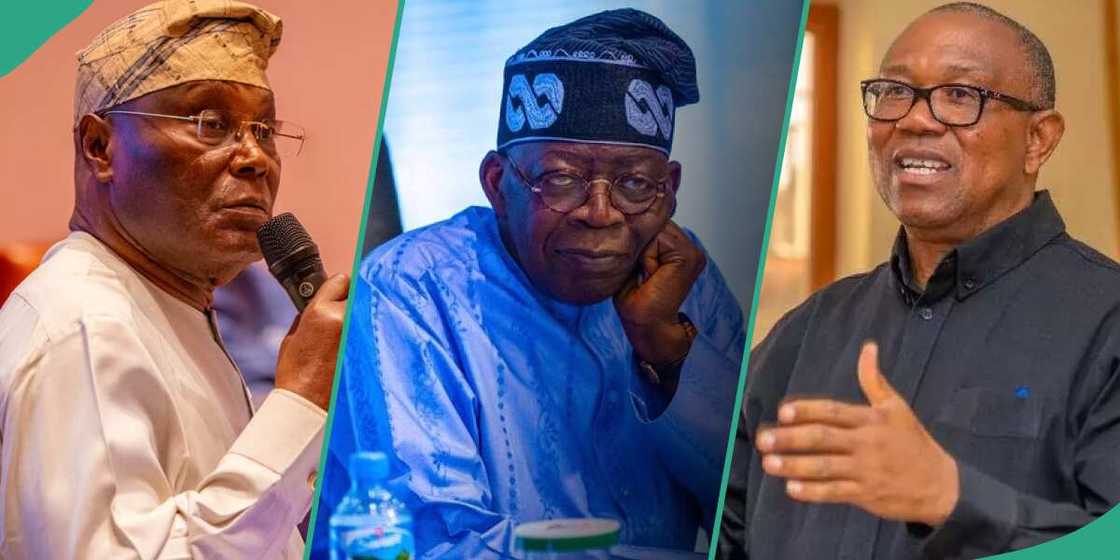
Source: Facebook
The "mega coalition", led by Atiku to unseat Tinubu in the next election had had the suport of several influential politicians across different regions and party affiliations.
This coalition is exploring ways to create a unified front to challenge the ruling All Progressives Congress (APC) at the ballot box in 2027.
However, while growing economic frustration and a more politically conscious electorate may seem to favour the opposition, the odds of a successful coalition remain uncertain.
Legit.ng has complied three major reasons why the proposed alliance may not work:
Deep opposition divisions and ego clashes
One of the most enduring challenges of Nigerian opposition politics is internal division.
While many of Tinubu’s critics agree on the need for a change in leadership, they often struggle to unite behind a common agenda or strategy.
In 2019 and 2023, previous attempts to form broad coalitions failed largely due to ideological inconsistencies, mistrust, and personal ambition.
Figures like Atiku Abubakar, Peter Obi, Rabiu Musa Kwankwaso, and Nasir El-Rufai each command loyal followings, but past experiences suggest that reconciling their divergent interests may prove difficult.
The lack of a unified vision and frequent clashes of ego could derail coalition talks long before the campaigns begin in earnest.
Meanwhile, the partnership between Atiku and the Peoples Democratic Party (PDP) has soured, as the opposition party reportedly disapproves of his strategy to unseat Tinubu ahead of the 2027 election.
Political analyst, Samuel Aye, while speaking with Legit.ng on Sunday, June 29, noted:
"The opposition in Nigeria has always had the numbers, but rarely the cohesion. Too many big players, each seeing themselves as kingmakers or natural candidates, make compromise almost impossible."
Tinubu’s strong political machinery
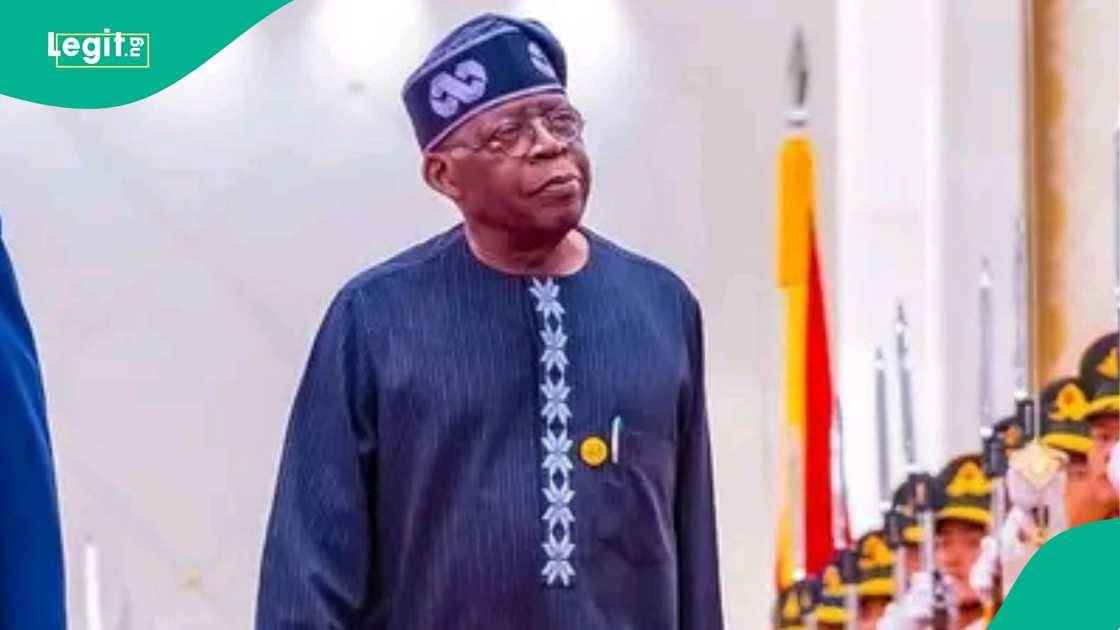
Source: Facebook
Despite public discontent over recent economic reforms, President Tinubu remains one of Nigeria’s most formidable political strangmen.
Known for his deep political networks, financial influence, and strategic acumen, Tinubu built and led the coalition that toppled the PDP’s 16-year reign in 2015.
Since assuming office, he has further entrenched his grip on key national institutions and state structures.
Many governors, legislators, and party stalwarts remain loyal to the president, giving him a strong base from which to launch his re-election campaign.
In addition, Tinubu's APC controls most of the political machinery at the grassroots level, making it harder for opposition candidates to compete across all 36 states.
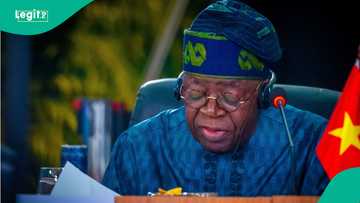
Read also
ADC accused of politicising Nigeria’s debt as group lists projects behind Tinubu’s borrowing
His ability to mobilise massive support in the South-West and make strategic inroads into northern Nigeria remains a significant advantage.
Difficulty in finding charismatic, consensus candidate
Another hurdle for the anti-Tinubu coalition is the challenge of selecting a single, compelling candidate who can rally widespread national support.
While Peter Obi appeals strongly to younger voters and urban dwellers, Atiku maintains a loyal following in the North.
Kwankwaso commands influence in Kano and parts of the North-West, while El-Rufai has a reputation for administrative competence.
Kwankwaso’s stance on the opposition coalition remains uncertain, as sources within the APC suggest that the former Kano governor may still defect to the ruling party, especially now that its chairman, Abdullahi Ganduje, has suddenly resigned.
However, none of them, at least for now, has emerged as the obvious consensus candidate with the charisma, national reach, and unifying appeal required to galvanise the opposition base.
Any disagreement over who flies the coalition's presidential flag could fracture the group and weaken its electoral prospects.
Without a clear front-runner who can embody the coalition’s vision and energise voters across regions, the alliance may suffer the same fate as previous attempts, fizzling out under the weight of conflicting ambitions.
As the countdown to 2027 continues, much will depend on whether opposition leaders can put aside personal interests and forge a united, inclusive and credible platform.
But with so many moving parts, the road to unseating an incumbent as entrenched as Tinubu remains steep and uncertain.
3 reasons Atiku can defeat Tinubu
Previously, Legit.ng reported that as the politics of 2027 heat up, politicians are scheming to take or retain power.
In light of this, the big question on the lips of many Nigerians is, can former Vice President (VP), Atiku Abubakar, defeat President Bola Tinubu of the All Progressives Congress (APC) to be elected Nigeria's leader?
Atiku, the Peoples Democratic Party (PDP) presidential candidate in 2019 and 2023, has been rooting for a coalition to challenge the APC in 2027.
Source: Legit.ng

